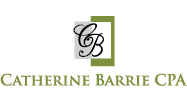Catherine Barrie Accounting is not only terrific accounting office. We can also help create and set up a Trust for you as part of your estate planning as well. There are several types of trusts that can be set up. Here are some of the top that come to mind.
There are family trusts, insurance trusts, cottage trusts, Henson trusts, irrevocable life insurance trusts, qualified domestic trusts, spendthrift trusts, charitable remainder trusts, purpose trusts and many other types of trusts.
Here are 10 reasons you should set up a Trust.
- Avoid Probate: Probate is the process of validating a deceased person’s will and placing a value on their assets, paying their final bills and taxes, and distributing the rest to their beneficiaries. Avoiding Probate is the most common reason people set up a Trust. Most people have never had to deal with probate. However avoiding it is one of the most common reasons people want to create a trust.
This stems from probate horror stories covered by the media or told by neighbors, friends, or business associates.
For the vast majority of people, avoiding probate is a very good reason for creating an estate plan and can be easily achieved with a trust.
- Protecting assets
If you want to protect assets from creditors, marriage breakdown or from those who might influence your beneficiaries, a trust can be an effective vehicle. Be aware that there is “fraudulent conveyance” legislation that could prevent you from transferring assets to a trust to avoid claims in some cases – speak to a lawyer about it. - Controlling distributions
If you don’t trust your beneficiaries to directly own the assets you want them to have (perhaps because they are minors or spendthrifts), you can distribute assets to them over time through a trust. - Providing privacy
After your death, your will is likely to be probated. In this case, your will becomes a public document, along with the value of the assets that formed your estate. Further, certain people may be entitled by law to receive a copy of your will. A trust agreement, however, is a private document and can keep information confidential. Some people replace their wills with a trust. - Avoiding compulsory succession
If someone feels that they were treated unfairly in your will, a legal battle could ensue. In some cases, it may be possible for your will to be varied (changed) – called “compulsory succession.” A properly drafted trust can be watertight so that challenges to your wishes may be avoided. - Multiplying tax exemptions
It’s possible to use a trust to access the lifetime capital gains exemption (LCGE) or the principal residence exemption (PRE), even where it would otherwise be impractical to do so. For example, if a trust owns shares of a qualifying small business corporation, it may be possible to utilize the $800,000 LCGE of each beneficiary. Similarly, if a trust owns a residence, it may be possible to shelter a sale from tax using the PRE, as long as at least one beneficiary ordinarily inhabits the home. - Saving taxes
It’s also possible to save taxes in other ways. For example, it’s possible to split income with lower-income beneficiaries by allocating income of the trust to those beneficiaries to be taxed at their lower rates (though there are some exceptions). In addition, testamentary trusts, created in your will upon your death, have in the past allowed beneficiaries to save tax by taking advantage of the low graduated rates of tax available to those trusts. This week’s federal budget eliminated the long-term benefit of testamentary trusts for this purpose, but they can still offer these graduated tax rates for the first three years following your death, after which the trust will be subject to the highest marginal tax rate, causing the tax benefits to disappear. It may also be possible to avoid provincial surtaxes using a trust, if your province levies surtaxes. - Preserving disability benefits
If a beneficiary is eligible for certain disability plan payments in your province, it’s possible that those benefits can be eroded under a means test if there are assets in his name or set aside for him. A properly worded trust can be used to hold assets for the beneficiary while still meeting the requirements of your province that will entitle him to receive those payments. This is often called a “Henson trust.” - Helping charity
A trust can be set up with the purpose of providing gifts to charity. - Managing assets If your beneficiaries don’t have the capability or desire to manage the assets you’ll be giving them, having trustees manage those assets can solve the problem. Perhaps your kids are minors, or have a disability. You may want to manage the assets while you’re alive, but when you’re gone, a trust can provide proper management if necessary.
What makes each of these trusts different? Their purpose. The reason for setting up the trust in the first place – is critical to understand, and that will dictate what the wording of the trust agreement will look like.
Catherine Barrie Accounting can sit down with you, explain the different types of trusts in greater detail in a discrete consultation. Discuss how they can help you achieve the desired outcome you may need. Working with you to make sure your Trust needs are meet, and you are fully satisfied, achieving the desired results.
Catherine Barrie Accounting office is conveniently located in Downtown Barrie Ontario. Please feel free to call me at 705-719-7778 or you can email me here.
We look forward to meeting with you, and helping you with your Tax and/or your Trust needs today.






